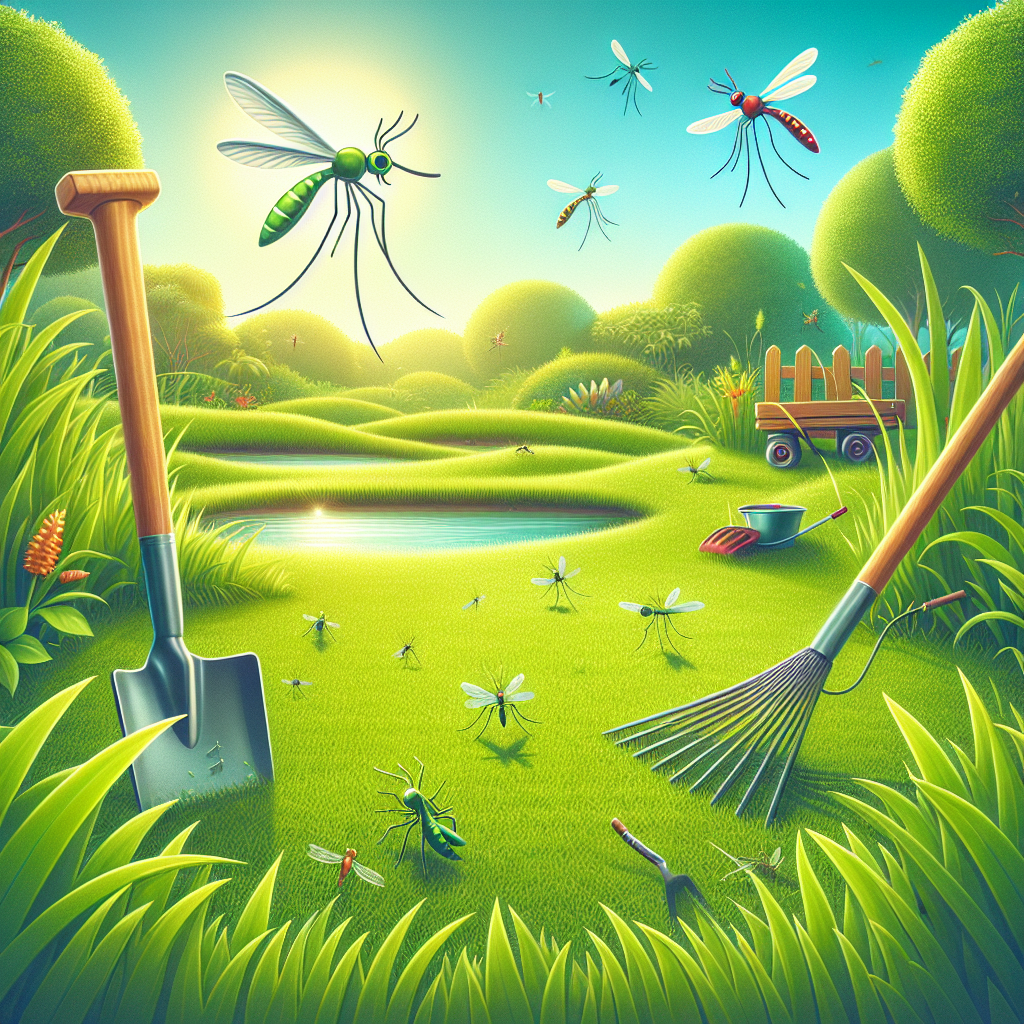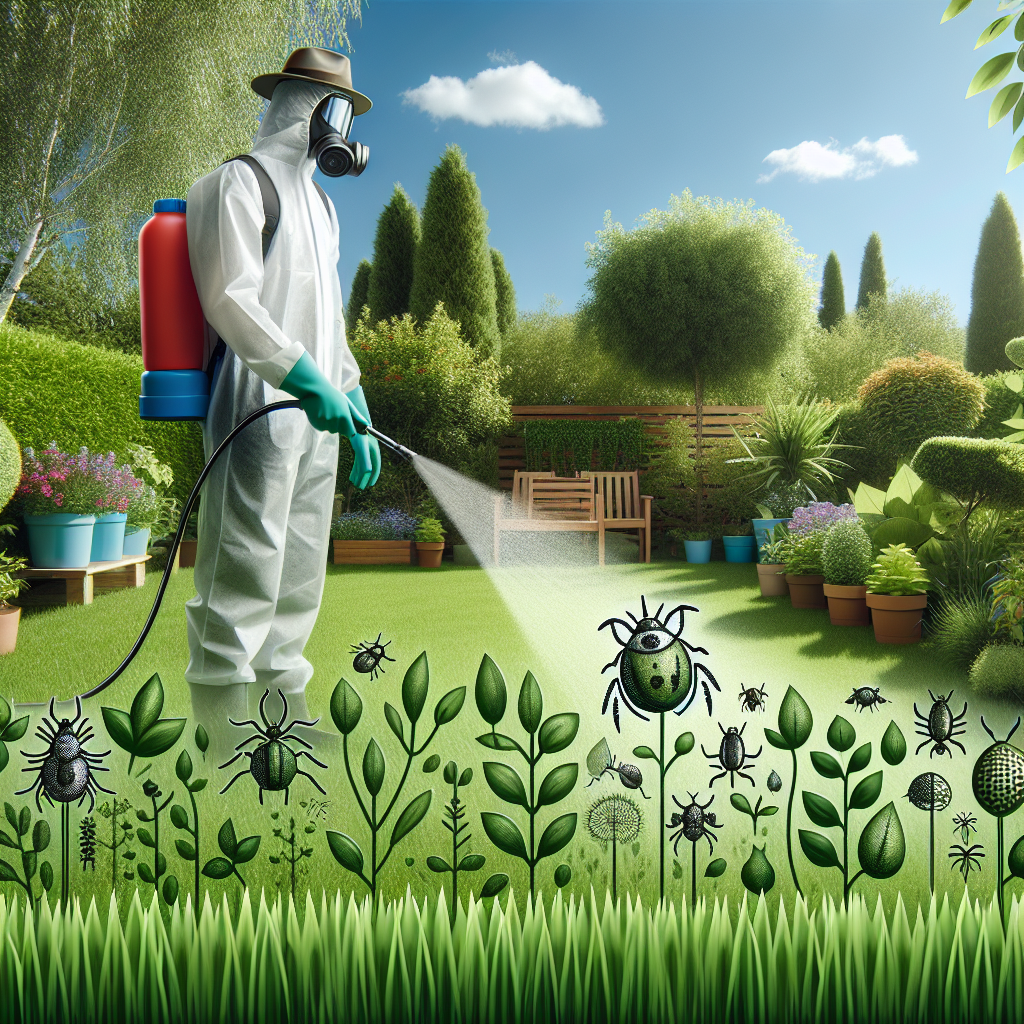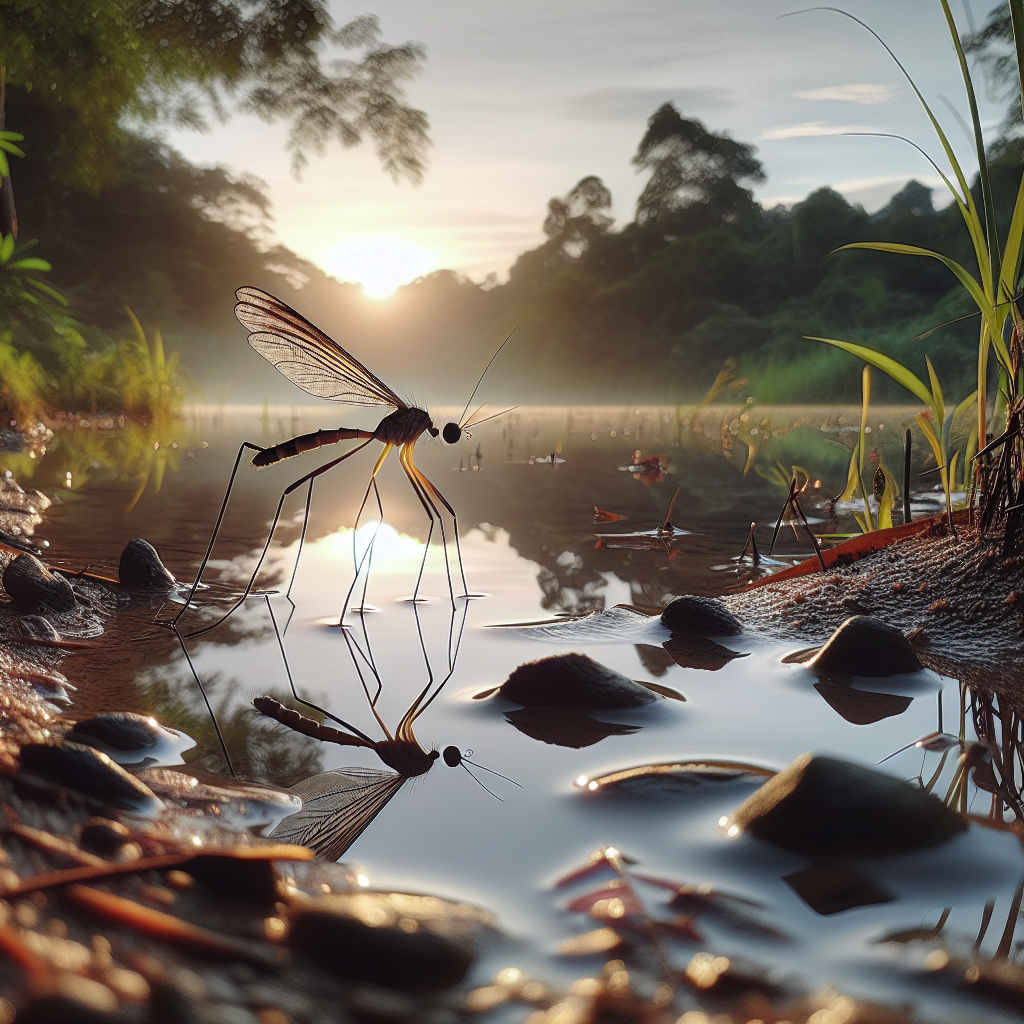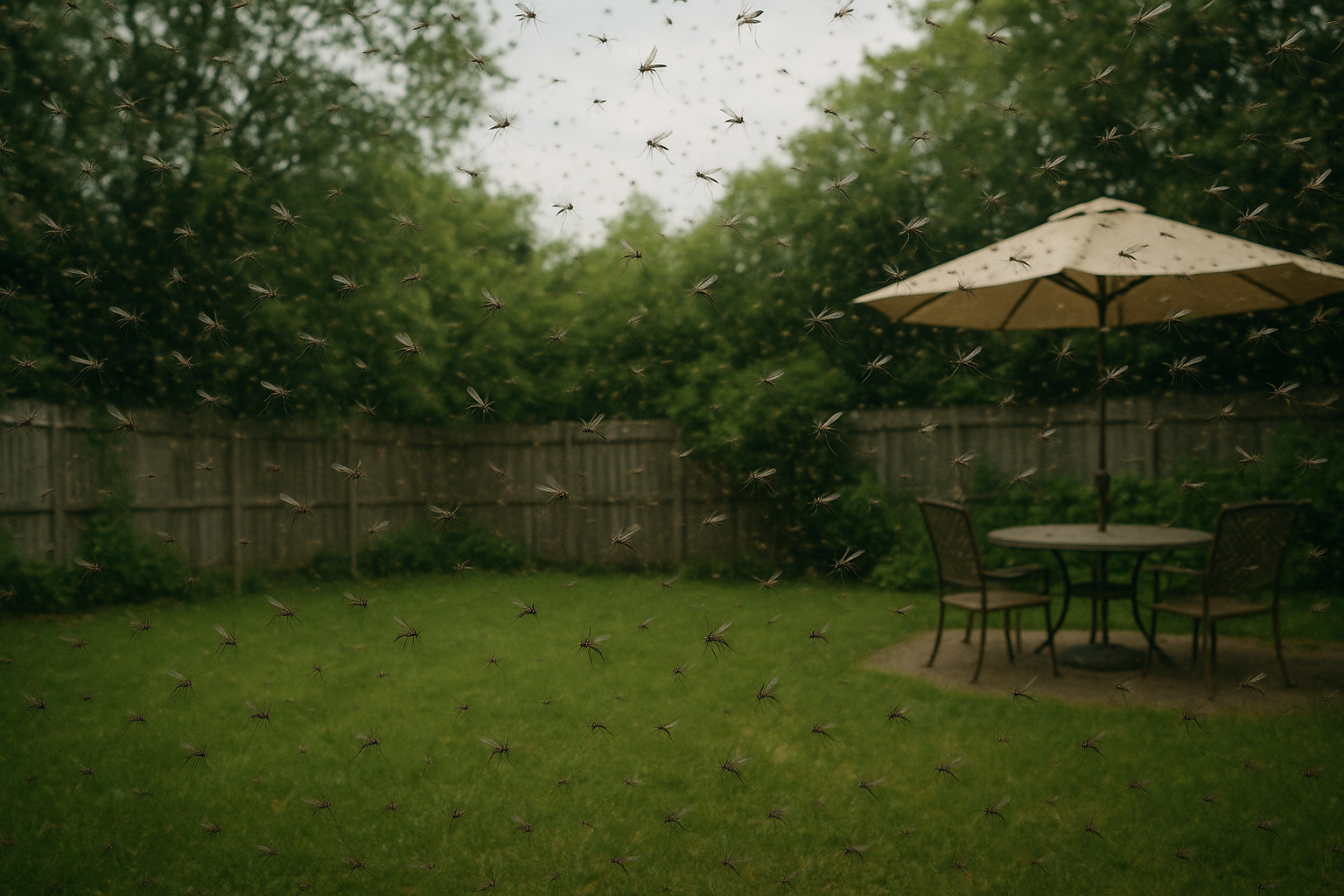How to Keep Mosquitoes Away from Your Outdoor Spaces
Understanding the Mosquito Problem
Mosquitoes are more than just a nuisance; they can turn a relaxing evening outdoors into an itchy, frustrating experience. These tiny pests thrive in warm, humid environments, making outdoor spaces like backyards, patios, and gardens their prime territory. But the problem goes beyond their annoying bites. Mosquitoes are known carriers of dangerous diseases, including West Nile virus, dengue, Zika virus, and malaria. Even in areas where these diseases are less common, the risk of allergic reactions to mosquito bites can still pose a health concern, especially for children and those with sensitive skin.
Proactive mosquito control is essential for maintaining the safety and comfort of your outdoor spaces. Without intervention, mosquitoes can quickly multiply, making it nearly impossible to enjoy your yard, host gatherings, or even step outside without being swarmed. By understanding the risks and taking preventive measures, you can reclaim your outdoor areas and protect your family from potential health hazards.
Ready for a mosquito-free yard? Call 704-327-6235 today.
Identify Mosquito Breeding Grounds
Mosquitoes breed in standing water, making it crucial to identify and eliminate these breeding sites around your home. Common culprits include flower pots, clogged gutters, birdbaths, and even small puddles that form after rain. Mosquitoes only need a tiny amount of water—less than an inch—to lay their eggs, so even overlooked areas like the base of a plant saucer or an old tire can become a breeding ground.
To prevent infestations, regularly inspect your outdoor spaces for standing water. Empty and clean birdbaths weekly, ensure gutters are free of debris, and store unused items like buckets or tarps in a dry location. For areas where water cannot be removed, such as ponds, consider using mosquito dunks, which are safe for wildlife but effectively kill mosquito larvae. Consistent maintenance is key to breaking the mosquito life cycle and keeping their population under control.
Natural Ways to Repel Mosquitoes
If you prefer a chemical-free approach, natural repellents can be highly effective in keeping mosquitoes at bay. Essential oils like citronella, lavender, and eucalyptus are well-known for their mosquito-repelling properties. You can use these oils in diffusers, candles, or even as part of a DIY spray. For example, mix 10 drops of citronella oil with water and witch hazel in a spray bottle for a natural, skin-safe repellent.
Incorporating mosquito-repelling plants into your landscaping is another excellent strategy. Plants like marigolds, basil, lemongrass, and mint not only add beauty to your garden but also emit scents that mosquitoes dislike. Place these plants near seating areas, doorways, or windows to create a natural barrier.
Setting Up Physical Barriers
Physical barriers are a practical way to create a mosquito-free zone in your outdoor spaces. Mosquito nets, screens, and outdoor curtains can be used to enclose patios, gazebos, or pergolas, providing a protective shield against these pests. These barriers are especially useful during peak mosquito hours, typically around dawn and dusk.
Another effective method is installing outdoor fans. Mosquitoes are weak fliers, and the breeze from a fan can disrupt their flight patterns, making it difficult for them to land on you. Position fans strategically around seating areas to maximize their effectiveness.
Mosquito traps are another option worth considering. These devices attract mosquitoes using light, heat, or carbon dioxide, then trap and kill them. While they may not eliminate the entire mosquito population, they can significantly reduce their numbers in localized areas, making your outdoor space more enjoyable.
Using Mosquito-Repelling Technology
Modern technology offers a range of gadgets designed to keep mosquitoes away. Ultrasonic devices, for instance, emit high-frequency sounds that are said to repel mosquitoes. While their effectiveness can vary, they are a chemical-free option worth exploring. Thermacell systems, on the other hand, use heat to disperse a mosquito-repelling vapor, creating a protective zone around your outdoor space.
Outdoor bug zappers are another popular choice, though they come with pros and cons. While they effectively kill mosquitoes, they can also attract and harm beneficial insects like bees and butterflies. If you choose to use a bug zapper, place it away from seating areas to minimize its impact on non-target species.
When selecting mosquito-repelling technology, consider the size of your outdoor space, your budget, and your specific needs. Combining these gadgets with other preventive measures can provide comprehensive protection against mosquitoes.
Safe Use of Chemical Repellents
Chemical repellents like DEET and picaridin are among the most effective tools for mosquito control. These products work by masking the scents that attract mosquitoes, making it harder for them to locate you. However, it's important to use them safely, especially around children and pets. Always follow the manufacturer's instructions, and avoid applying repellents to cuts, wounds, or irritated skin.
For those seeking eco-friendly alternatives, it's often best to call a qualified mosquito control company like Mosquito Authority of Charlotte to protect your home and yard. Professional pest control specialists know what to use, proper application techniques, and how to effectively manage and control mosquitoes.
Creating a Mosquito-Resistant Outdoor Environment
Transforming your yard into a mosquito-resistant haven starts with smart landscaping. Proper drainage is essential to prevent standing water, so ensure that your lawn slopes away from your home and that water doesn't pool in low-lying areas. Avoid water-retaining features like decorative fountains unless they are regularly cleaned and treated.
Outdoor lighting can also play a role in mosquito control. Mosquitoes are less attracted to yellow or LED lights, making them a better choice for evening illumination. Additionally, keeping your outdoor spaces clean and clutter-free can reduce hiding spots for mosquitoes and other pests.
Seasonal Mosquito Control Strategies
Mosquito activity varies with the seasons, peaking during warmer months. To prepare for peak mosquito season, start by inspecting and treating your outdoor spaces in early spring. Remove any debris that may have accumulated over the winter, and ensure that all water sources are clean and mosquito-free.
Long-term strategies, such as hiring professional pest control services, can provide added peace of mind. Professionals have access to advanced treatments and can tailor their approach to your specific needs, ensuring year-round protection against mosquitoes.
Community Efforts to Reduce Mosquito Populations
Mosquito control is most effective when it involves the entire community. Neighborhood clean-up drives can help eliminate breeding grounds, while local government programs, such as spraying and larvicide treatments, can target larger areas. Participating in these initiatives not only benefits your household but also contributes to the overall health and safety of your community.
Educating your neighbors about mosquito control is another important step. Share tips, resources, and encourage collective action to reduce mosquito populations. Together, you can create a safer, more enjoyable outdoor environment for everyone.
Final Thoughts on Enjoying Mosquito-Free Outdoor Spaces
Keeping mosquitoes away from your outdoor spaces requires a combination of strategies, from eliminating breeding grounds to using natural repellents, physical barriers, and modern technology. By taking a proactive approach and implementing these measures, you can enjoy a mosquito-free yard that’s safe, comfortable, and perfect for relaxation or entertaining.
Mosquito Authority of Charlotte NC delivers expert mosquito control services near me, mosquito and tick control, and lawn mosquito control treatments. No contracts. Guaranteed results.
Call 704-327-6235 to reclaim your outdoor space and enjoy a pest-free yard.










